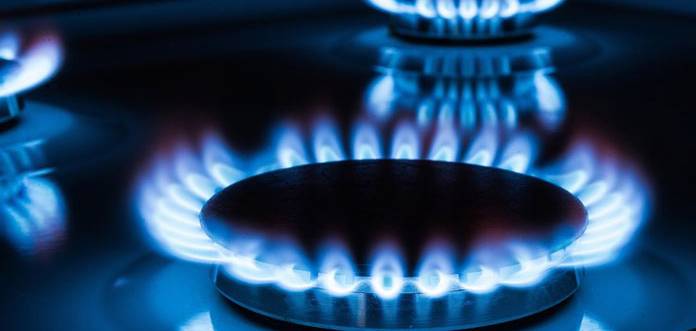
This article was published in The Conservation
The European Union is immersed in a process of energy transition towards a future 100% renewable scenario. However, until large-scale electricity storage projects are developed to cover the intermittency of wind and solar energy, electric systems will continue to rely on conventional sources, including gas-fired power plants. natural. These generating stations currently play an important role in the security of electricity supply.
Assuming that natural gas is a transition fuel to support the development of renewable energies in the short to medium term, its demand should decrease in the long term. These prospects limit future investments in new gas transport and storage infrastructure capacities.
In addition, the current conflicting geopolitical situation will accelerate the process of decarbonization of the European Union in order to reduce its dependence on imports of natural gas from Russia (about 40% of the total), as recently announced by the authorities of the European Union. EU.
National and community energy policies
The interruption of Russian gas transit through Ukraine in 2006 and 2009 has already had significant effects on industry and citizens, especially in 2009.
Join us and bet on evidence-based information.
In response to these events, the European Parliament adopted two regulations: Regulation (EU) 994/2010 and subsequently Regulation (EU) 2017/1938 . Its aim was to limit the effects of gas blackouts by cooperating between Member States and improving European security of supply.
Since then, EU countries have made numerous investments in new cross-border interconnectors, underground gas storage and regasification facilities. The latter in order to diversify the origin of gas supply by sea (liquefied natural gas or LNG).
Interestingly, some countries, including Germany, relied solely on pipeline supply, mainly from Russia. Something that turned out to be a very vulnerable strategy. Others, such as Spain and France, have significantly diversified their supply in recent years thanks to their commitment to liquefied natural gas.
European regulations do not seek to replace the role of countries in defining their energy policies. Its objective is to promote mutual support between natural gas producing countries, liquefied natural gas importing countries, countries passing through gas pipelines and the rest of the EU states. Similar cooperation mechanisms have also been proposed in the electricity sector to address potential infrastructure risks.
Mechanisms to deal with energy crises
Regulation (EU) 2017/1938 calls on each EU Member State to draw up prevention and emergency plans to deal with and manage natural gas supply crisis situations, whether in their own country or in neighboring countries.
On the other hand, one of the main innovations of this regulation is the creation of 13 risk groups in the face of a natural gas supply crisis. It is a way to promote regional cooperation among member countries.
A risk group consists of a group of Member States, geographically close, which share supply routes and risks in the event of a supply crisis. In addition, they are connected by cross-border gas pipelines. Thus, they can exchange gas flows between them in a relatively agile way.
According to the regional cooperation approach of this regulation, if a Member State experiences some kind of disruption to its national gas network which significantly affects supply and cannot be remedied by national measures, it should first request the assistance from States belonging to its risk group. If that wasn't enough, the rest of the EU member countries would be notified immediately.
This assistance provided to a State in crisis by other neighboring territories in emergency situations is called “solidarity mechanism”. To help define the legal, technical and financial arrangements between member countries that allow the implementation of the solidarity mechanism, including the form of payment for gas sent to a neighboring country, the European Commission has published the Recommendation (EU ) 2018/177 .
Coordinated use of energy infrastructure
In a recent research paper published in the journal Energy Strategy Reviews , we propose ways to achieve the objectives of Regulation (EU) 2017/1938, namely to provide a more cooperative approach, reduce the impact of supply disruptions in gas and address potential vulnerabilities in some Member States revealed in the research.
In the study, we propose a mathematical optimization methodology to maximize natural gas demand coverage in the EU during a fourteen-day supply crisis. The tool facilitates strategies to make better use of available resources and infrastructure.
We have demonstrated how the coordinated use of infrastructure would allow EU countries to cover up to 97% of their global natural gas demand in the face of a total gas disruption from Russia via pipeline for two weeks of winter , taking into account maximum gas demand and underground storage at minimum stock levels.
In this case, the countries of Southeast Europe would be more vulnerable to gas blackouts from Russia. On the other hand, the Iberian Peninsula and Greece would be more exposed to interruptions in the supply of liquefied gas by sea.
In short, cooperation is a fundamental value for European countries to face the challenges of the immediate future, in a scenario of great uncertainty regarding natural gas from Russia.
Investments made in recent years in the EU to improve supply security and supply diversification plans, as well as the availability of cooperation instruments and solidarity mechanisms, can help to better address the potential contingencies.
Author
 Jose Maria Yusta Loyo
Jose Maria Yusta Loyo
University teacher. Expert in Energy Markets and Critical Infrastructure, University of Zaragoza
Posted on 2022-04-06 10:05








Comments